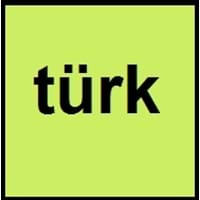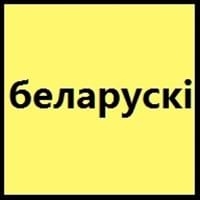Turkish vs Belarusian
- Turkish language oldest written records are found upon stone monuments in Central Asia, in Orhun, Yenisey and Talas regions.
- Turkish language was developed in the Middle East, streching all the way to Eastern Europe.
- Since 1918, Belarusian has been the official language of Belarus.
- Belarusian include many loanwords from Polish language.
Turkish and Belarusian Language History
Comparison of Turkish vs Belarusian language history gives us differences between origin of Turkish and Belarusian language. History of Turkish language states that this language originated in c. 1350 whereas history of Belarusian language states that this language originated in 18th century. Family of the language also forms a part of history of that language. More on language families of these languages can be found out on Turkish and Belarusian Language History.
Turkish and Belarusian Greetings
People around the world use different languages to interact with each other. Even if we cannot communicate fluently in any language, it will always be beneficial to know about some of the common greetings or phrases from that language. This is where Turkish and Belarusian greetings helps you to understand basic phrases in Turkish and Belarusian language. Turkish word for "Hello" is Merhaba or Belarusian word for "Thank You" is Dziakuj. Find more of such common Turkish Greetings and Belarusian Greetings. These greetings will help you to be more confident when conversing with natives that speak these languages.
Turkish vs Belarusian Difficulty
The Turkish vs Belarusian difficulty level basically depends on the number of Turkish Alphabets and Belarusian Alphabets. Also the number of vowels and consonants in the language plays an important role in deciding the difficulty level of that language. The important points to be considered when we compare Turkish and Belarusian are the origin, speaking countries, language family, different greetings, speaking population of these languages. Want to know in Turkish and Belarusian, which language is harder to learn? Time required to learn Turkish is 44 weeks while to learn Belarusian time required is Not Available.





